ISPA Urges California to Enact Reasonable PFAS Enforcement Mechanisms
As ISPA has previously reported, California recently enacted several laws restricting the use of PFAS in consumer products but did not provide who should enforce the restrictions or how. As a result, these laws are being referred to as “orphan codes” because no state agency is enforcing them. In addition, with state agencies facing budget cuts because of California’s ongoing budget crisis, the state has no money to enforce the laws even if an agency were authorized to do so.
CA AB 347, which has passed the California Assembly and is currently being considered in the Senate, attempts to address both the enforcement and funding problems. AB 347 would authorize California’s Department of Toxic Substances Control (DTSC) to enforce the orphan codes and require manufacturers of products subject to these laws to register with DTSC. To register, manufacturers must provide the name and description of each covered product it manufactures, a statement that the products comply with the PFAS restrictions and pay the “applicable registration fee.”
A previous version of this bill would have required manufacturers to regularly test their products to verify that they do not contain PFAS. The extent of the costs and administrative burdens that this requirement alone would have imposed would depend in part on how broadly or narrowly the term “product” was interpreted. Wording in the current bill could be read to mean that each SKU is a different product. If each SKU must be regularly tested for the presence of PFAS, this could require a manufacturer to incur substantial expenses, even if it has cautiously designed its products and sourced its components to avoid intentionally added PFAS.
In collaboration with other trade associations, ISPA is urging the California legislature to take a more pragmatic enforcement approach. This effort is beginning to bear fruit. For example, the Senate Environmental Quality (EQ) Committee last week amended the bill to delete the requirement that manufacturers test all products. Instead, the bill now requires manufacturers to provide a statement of compliance to DTSC. Rather than require manufacturers to test all their products regularly for PFAS compliance, the bill requires a manufacturer to provide technical documentation, including analytical test results, to demonstrate compliance with the applicable covered PFAS restriction, only upon DTSC request.
Following these amendments, the Senate EQ Committee approved AB 347. Nevertheless, the Committee’s Chair noted that additional amendments will be necessary.
Outstanding issues include exactly what criteria must be used to test products and which test labs manufacturers must use. Although AB 347 requires DTSC to promulgate regulations and publish testing methods, this language lacks detail.
Moving forward, the trade association coalition and we are urging the legislature to amend AB 347 further to:
- Require that DTSC promulgate regulations and test methods by January 1, 2026 that set clear parameters and test processes
- Clarify the “applicable registration fee” manufacturers pay to DTSC upon their registration is a one-time fee
- Authorize DTSC to randomly sample products covered by these laws for PFAS compliance starting January 1, 2027 and to recover additional costs from violators
- Provide manufacturers various procedural due process rights currently absent from AB 347 that DTSC would need to follow before finding a violation
- Require DTSC to issue clear, reasonable regulations that manufacturers can comply with while avoiding excessive costs
AB 347 will be considered next in the Senate Health Committee on July 3rd, just before the legislature adjourns for summer recess through the remainder of July.
Procedurally, if the Senate passes AB 347 in a form that is different from what the Assembly approved, the Assembly will need to reconsider and pass the amended version before it can be sent to the Governor for signature.
ISPA will keep you apprised of any significant developments as this bill is negotiated throughout the summer.


